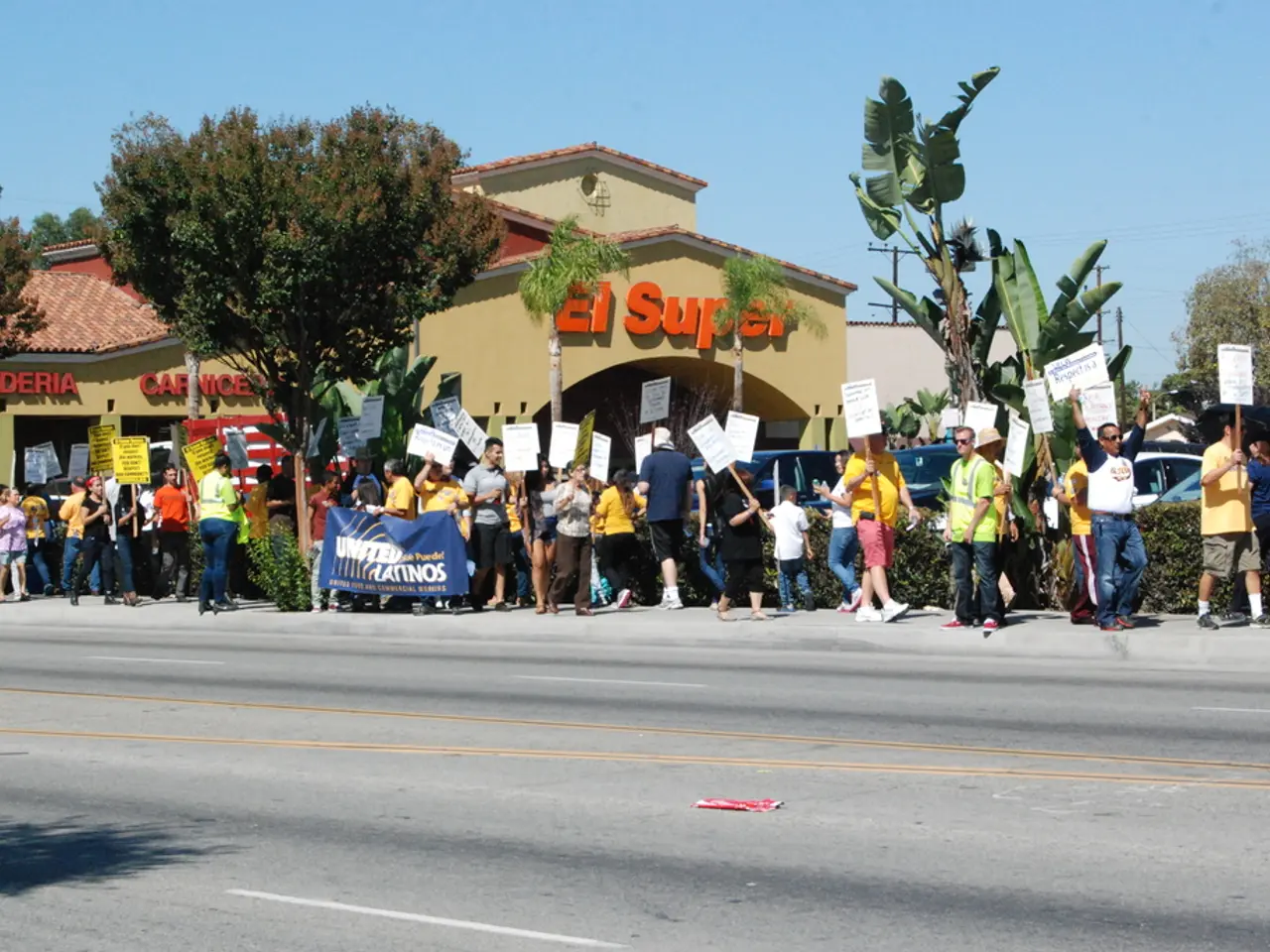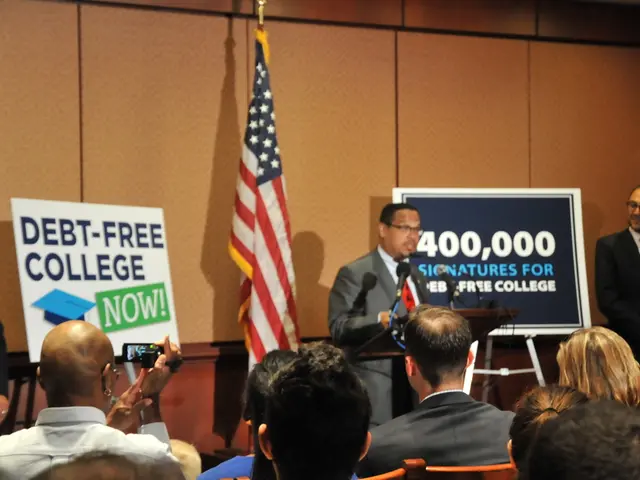"Recognition of past anti-independence repression by Macron sparks debate in Cameroon, despite coming belatedly"
In the heart of Yaoundé, the central roundabout buzzes with life. Honks from yellow taxis and chatter among vendors serve as the background music, while various items, including peanuts, clothes, and administrative stamps, are being sold. Amidst the bustling marketplace, Alain Bassong, a vendor, sells wallets and pearl necklaces.
On a recent Wednesday afternoon, the roundabout was particularly lively. This was not due to the usual market activities, but rather a letter penned by Emmanuel Macron, the President of France, to Cameroon's President Paul Biya. In the letter, Macron acknowledges that France waged a "war" involving repressive violence against Cameroon's independence movement from the 1940s through the early 1970s, a first official admission by France detailing the nature and scale of brutal colonial repression in Cameroon during the decolonization era.
The letter follows a 2025 joint report by French and Cameroonian historians, which found that France’s actions included violations of human rights and laws of war and that France exercised "repressive violence" akin to warfare in portions of the country. Macron's acknowledgment represents a continuation of France’s gradual truth-telling efforts about its colonial past, similar to previous admissions concerning Algeria, Senegal, and Rwanda, though it notably stops short of issuing an official apology or repentance.
The implications of this acknowledgment are complex. While it marks progress toward historical reckoning and reconciliation, it also highlights ongoing tensions. Many Cameroonians seek justice, reparations, and genuine reconciliation beyond Macron’s verbal recognition. However, the Cameroonian government under Biya, considered an autocratic heir to the post-independence regime installed by France, remains a close ally of Paris, complicating popular demands for accountability. The letter also signals France's interest in moving from symbolic gestures toward more substantive cooperation in areas like education, culture, and research with Cameroon.
As the letter circulates among the crowd at the central roundabout, discussions about the upcoming presidential election in Yaoundé, scheduled for October 12th, also intensify. Alain Bassong, a 58-year-old vendor with a round belly, wears a checked shirt as he reflects on Macron's letter. "This acknowledgement is a big step," he says, his voice echoing the sentiments of many in the crowd. Sylvain Nana, a book vendor, speculates that Macron is trying to make amends.
As the sun sets and the vendors begin to pack up their wares, the central roundabout in Yaoundé returns to its usual hustle and bustle. Yet, the echoes of Macron's letter reverberate, initiating a necessary but still incomplete process of historical truth-telling that could influence future France-Cameroon relations and the broader dialogue on colonial legacies in Francophone Africa.
Read also:
- Weekly happenings in the German Federal Parliament (Bundestag)
- Southwest region's most popular posts, accompanied by an inquiry:
- Discussion between Putin and Trump in Alaska could potentially overshadow Ukraine's concerns
- Tinubu's administration allegedly causing issues within every political party as Peter Obi's name surfaces - Obidient Movement asserts








